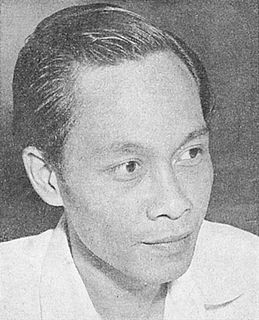A Quote by Herbert Marcuse
Where these reduced (operational - E.W.) concepts govern the analysis of the human reality, individual or social, mental or material, they arrive at a false concreteness - a concreteness isolated from the conditions which constitute its reality. In this context, the operational treatment of the concept assumes a political function. The individual and his behavior are analyzed in a therapeutic sense - adjustment to his society. Thought and expression, theory and practice are to be brought in line with the facts of his existence without leaving room for the conceptual critique of these facts.
Quote Topics
Adjustment
Analysis
Arrive
Behavior
Brought
Concept
Concepts
Conceptual
Conditions
Constitute
Context
Critique
Existence
Expression
Facts
False
Function
Govern
His
His Ex
Human
Individual
Isolated
Leaving
Line
Material
Mental
Operational
Political
Practice
Reality
Reduced
Room
Sense
Social
Society
Theory
Theory And Practice
Therapeutic
Thought
Treatment
Which
Without
Related Quotes
Many, and I think the determining, constitutive facts remain outside the reach of the operational concept. And by virtue of this limitation this methodological injunction against transitive concepts which might show the facts in their true light and call them by their true name the descriptive analysis of the facts blocks the apprehension of facts and becomes an element of the ideology that sustains the facts. Proclaiming the existing social reality as its own norm, this sociology fortifies in the individuals the "faithless faith" in the reality whose victims they are.
Society in its full sense ... is never an entity separable from the individuals who compose it. No individual can arrive even at the threshold of his potentialities without a culture in which he participates. Conversely, no civilization has in it any element which in the last analysis is not the contribution of an individual.
Every individual is at once the beneficiary and the victim of the linguistic tradition into which he has been born - the beneficiary inasmuch as language gives access to the accumulated records of other people's experience, the victim in so far as it confirms him in the belief that reduced awareness is the only awareness and as it bedevils his sense of reality, so that he is all too apt to take his concepts for data, his words for actual things.
Dialectical logic undoes the abstractions of formal logic and of transcendental philosophy, but it also denies the concreteness of immediate experience. To the extent to which this experience comes to rest with the things as they appear and happen to be, it is a limited and even false experience. It attains its truth if it has freed itself from the deceptive objectivity which conceals the factors behind the facts - that is, if it understands its world as a historical universe, in which the established facts are the work of the historical practice of man.
No one is without Christianity, if we agree on what we mean by that word. It is every individual's individual code of behavior by means of which he makes himself a better human being than his nature wants to be, if he followed his nature only. Whatever its symbol - cross or crescent or whatever - that symbol is man's reminder of his duty inside the human race.
To the degree to which they correspond to the given reality, thought and behavior express a false consciousness, responding to and contributing to the preservation of a false order of facts. And this false consciousness has become embodied in the prevailing technical apparatus which in turn reproduces it.
The Western approach to reality is mostly through theory, and theory begins by denying reality - to talk about reality, to go around reality, to catch anything that attracts our sense-intellect and abstract it away from reality itself. Thus philosophy begins by saying that the outside world is not a basic fact, that its existence can be doubted and that every proposition in which the reality of the outside world is affirmed is not an evident proposition but one that needs to be divided, dissected and analyzed. It is to stand consciously aside and try to square a circle.
We are in the society of the teacher-judge, the doctor-judge, the educator-judge, the 'social-worker'-judge; it is on them that the universal reign of the normative is based; and each individual, wherever he may find himself, subjects to it his body, his gestures, his behavior, his aptitudes, his achievements.
The demands of our reality function require that we adapt to reality, that we constitute ourselves as a reality and that we manufacture works which are realities. But doesn't reverie, by its very essence, liberate us from the reality function? From the moment it is considered in all its simplicity, it is perfectly evident that reverie bears witness to a normal useful irreality function which keeps the human psyche on the fringe of all the brutality of a hostile and foreign non-self.
There's an all-enveloping destructiveness in Donald Trump's character and in his psychological tendencies. But I've focused on what professionally I call solipsistic reality. Solipsistic reality means that the only reality he's capable of embracing has to do with his own self and the perception by and protection of his own self. And for a president to be so bound in this isolated solipsistic reality could not be more dangerous for the country and for the world. He's not psychotic, but I think ultimately this solipsistic reality will be the source of his removal from the presidency.
When the facts of history are written Haile Selassie of Abyssinia will go down as a great coward who ran away from his country to save his skin and left the millions of his countrymen to
struggle through a terrible war that he brought upon them because of his political ignorance and his racial disloyalty.
No other technique for the conduct of life attaches the individual so firmly to reality as laying emphasis on work; for his work at least gives him a secure place in a portion of reality, in the human community. The possibility it offers of displacing a large amount of libidinal components, whether narcissistic, aggressive or even erotic, on to professional work and on to the human relations connected with it lends it a value by no means second to what it enjoys as something indispensable to the preservation and justification of existence in society.





































